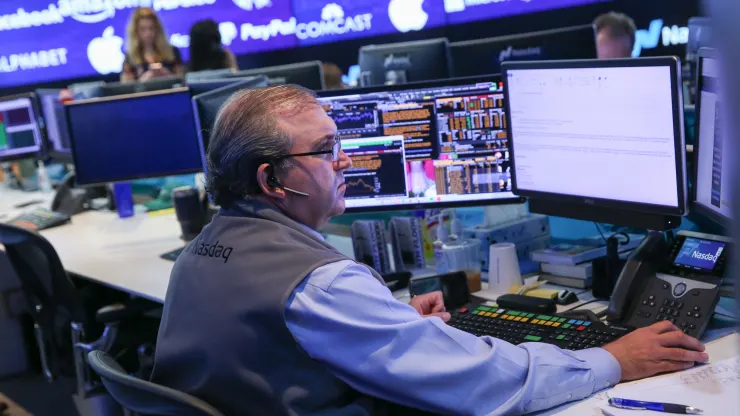
The Nasdaq Composite rose to an all-time high Friday, surpassing its 2021 record, as investors bet that megacap technology stocks were the best way to play slowing inflation and a coming artificial intelligence boom.
The tech-heavy Nasdaq advanced 1.14% to 16,274.94, notching a new high of 16,302.24 during the session. A day earlier, the index closed at its first record since November 2021. The S&P 500 added 0.80% to 5,137.08 for its first close above the 5,100 threshold. The Dow Jones Industrial Average gained 90.99 points, or 0.23%, to 39,087.38.
Chipmaking giant Nvidia, which has led the tech rally by surging more than 260% over the last 12 months, was up another 4% Friday. Meta also jumped more than 2% for the day.
On a weekly basis, the Nasdaq added 1.74%, while the S&P 500, which also popped to a record close on Thursday, advanced 0.95%. Both indexes notched their seventh positive week over the last eight. The 30-stock Dow is the laggard, down 0.11%.
The Nasdaq was the last of the major U.S. stock benchmarks to reach a record close this year, when it achieved the milestone Thursday. Enthusiasm over AI has lifted mega-cap tech stocks – and the broader market – through 2023 and into this year. Slowing inflation, and the Federal Reserve’s ensuing pivot toward rate cuts forecasted for later in 2024, have also contributed to the Nasdaq’s recovery from a difficult 2022.
“We’re seeing this big run up in tech because there’s a massive emphasis on what it might be — there’s so much emphasis on AI and this big sort-of redux of the late 90s,” said Jamie Cox, managing partner at Harris Financial Group.
“People [now] just completely disregard the rest of the market. And that’s generally does not turn out well,” Cox added.
Stocks gained even as troubled regional bank New York Community Bancorp
declined 25.9% after the lender announced a leadership change and disclosed issues with its internal controls. The bank is already down more than 65% in 2024, with some investors concerned it is a sign of a wider real estate shakeout ahead.
























